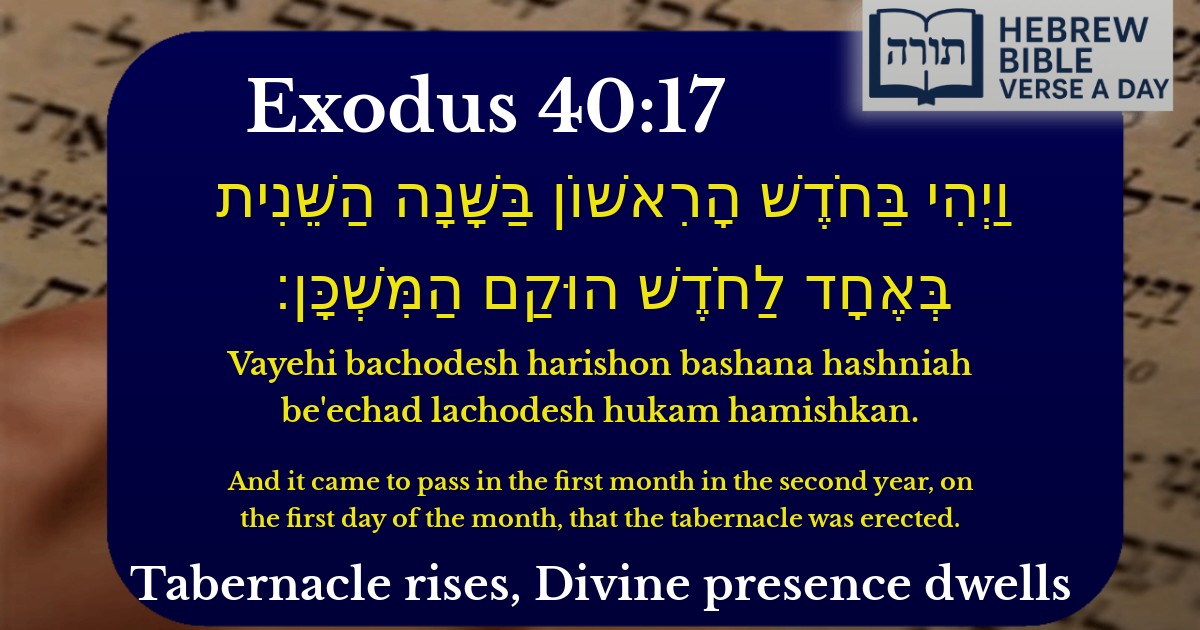Join Our Newsletter To Be Informed When New Videos Are Posted
Join the thousands of fellow Studends who rely on our videos to learn how to read the bible in Hebrew for free!
Hebrew Text
וַיְהִי בַּחֹדֶשׁ הָרִאשׁוֹן בַּשָּׁנָה הַשֵּׁנִית בְּאֶחָד לַחֹדֶשׁ הוּקַם הַמִּשְׁכָּן׃
English Translation
And it came to pass in the first month in the second year, on the first day of the month, that the tabernacle was erected.
Transliteration
Vayehi bachodesh harishon bashana hashniah be'echad lachodesh hukam hamishkan.
Hebrew Leining Text
וַיְהִ֞י בַּחֹ֧דֶשׁ הָרִאשׁ֛וֹן בַּשָּׁנָ֥ה הַשֵּׁנִ֖ית בְּאֶחָ֣ד לַחֹ֑דֶשׁ הוּקַ֖ם הַמִּשְׁכָּֽן׃
וַיְהִ֞י בַּחֹ֧דֶשׁ הָרִאשׁ֛וֹן בַּשָּׁנָ֥ה הַשֵּׁנִ֖ית בְּאֶחָ֣ד לַחֹ֑דֶשׁ הוּקַ֖ם הַמִּשְׁכָּֽן׃
🎵 Listen to leining
Parasha Commentary
📚 Talmud Citations
This verse is not quoted in the Talmud.


The Timing of the Mishkan's Erection
The verse (Shemot 40:17) states that the Mishkan was erected on the first day of the first month (Nissan) in the second year after the Exodus. Rashi explains that this date was significant because it marked the beginning of a new era for Bnei Yisrael—the Shechinah would now dwell among them in the Mishkan. The first of Nissan was also the day when the laws of the Mishkan's service were first given, as detailed in the preceding chapters.
Symbolism of the First of Nissan
According to the Midrash (Tanchuma, Pekudei 11), the first of Nissan was a day of great joy, comparable to the day of Creation. Just as the world was completed and Hashem's presence was revealed at Creation, so too was the Mishkan completed, allowing the Divine Presence to dwell among Israel. The Ramban adds that this date was chosen to parallel the dedication of the Mishkan with the renewal of time—Nissan being the first month of the Jewish calendar, as stated in Shemot 12:2.
The Order of Erection
The Talmud (Shabbat 87b) notes that Moshe Rabbeinu personally erected the Mishkan on this day, despite its immense weight, as a demonstration of his unique spiritual strength. The Sforno explains that this act symbolized Moshe's role as the intermediary between Hashem and the people, ensuring that the Mishkan was established with the utmost sanctity.